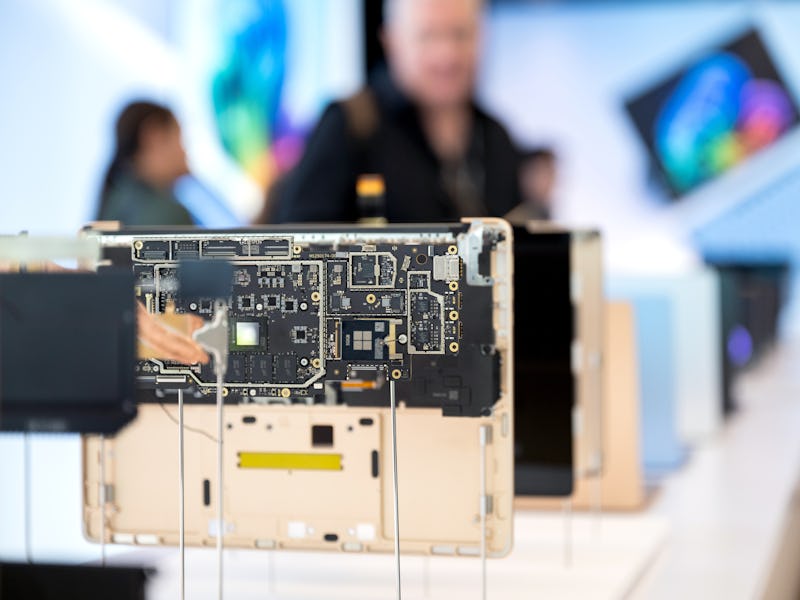How Microsoft’s New Surface Laptops Earn the Title of “First AI PC”
Let's demystify what we mean by “AI PC” and whether it’s worth all the rage.

Microsoft has been shouting about the PC revolution for some time now, and for a company that’s struggled in the hardware department, it might have sounded like a load of hot air. That was until recently when the addition of a single key to its standard keyboard finally gave weight to that claim.
In January, Microsoft introduced one of the most drastic additions to PC keyboards in years, if not decades, when it announced the arrival of the new Copilot key. Copilot, Windows’ AI assistant, has been at the forefront of the company’s immersion into AI, and its dedicated key signaled its re-entry into the lead of the PC marketplace. It also seemed to gesture at a larger restructuring of Microsoft’s hardware, leading Yusuf Medhi, the company’s chief marketing officer, to declare 2024 “the year of the AI PC.”
In the four months since, the phrase “AI PC” has been almost inescapable, but what exactly does that assortment of letters mean?
HOW MICROSOFT IS DEFINING THE AI PC
At its recent Build conference, Microsoft set the definition of “AI PC” when it unveiled a new line of Surface Pro and Surface Laptops. Part of a new category called Copilot+ PCs, the AI-focused computers run on a reimagined version of Windows 11 powered by a Qualcomm-designed chip, rather than traditional Intel or AMD ones.
It’s these Snapdragon X Elite and X Plus chips that really put the “AI” in “AI PC.” While most PCs run on central processing units (CPU) and graphics processing units (GPU), AI PCs emphasize their neural processing units (NPU), which are wholly dedicated to optimizing AI and machine learning tasks. Features like Microsoft’s newly announced Recall, which acts as the user’s own time machine, allowing them to find documents, images, and websites with natural language prompts, rely heavily on the NPU to work.
The NPU runs locally, meaning that no internet connection is required. For context, while ChatGPT is trained on public data stored in the cloud, Microsoft’s new AI PCs learn from your own data. It’s a big leap for the hardware and one that will aid in Copilot becoming a greater part of our everyday life. Probably.
People obviously have to want to adopt Copilot or Microsoft’s many AI features first, but building and selling a PC that can handle complex AI is half the battle.
MICROSOFT VS APPLE
Of course, Microsoft isn’t alone in its AI PC goals. What we’ll likely see is a reinvigorated battle between Microsoft and Apple. If Microsoft’s demos are anything to go by (take them with a grain of salt) then Apple’s M3 chip will have found a fierce competitor in Copilot+.
Even without Microsoft’s AI edge, Copilot+ appears to vastly outpace anything that came before it. Gone are the shortcomings (short battery life and unreliable performance) of past Arm-powered Windows laptops, and in their place, power and stamina that actually compete with what Apple has been serving since it transitioned away from Intel in 2020.
The pendulum could swing once again when Apple announces its new AI-powered software upgrades to the iPhone and MacBook at the Worldwide Developers Conference in June, but for now, Microsoft has its own solid start.
This article was originally published on